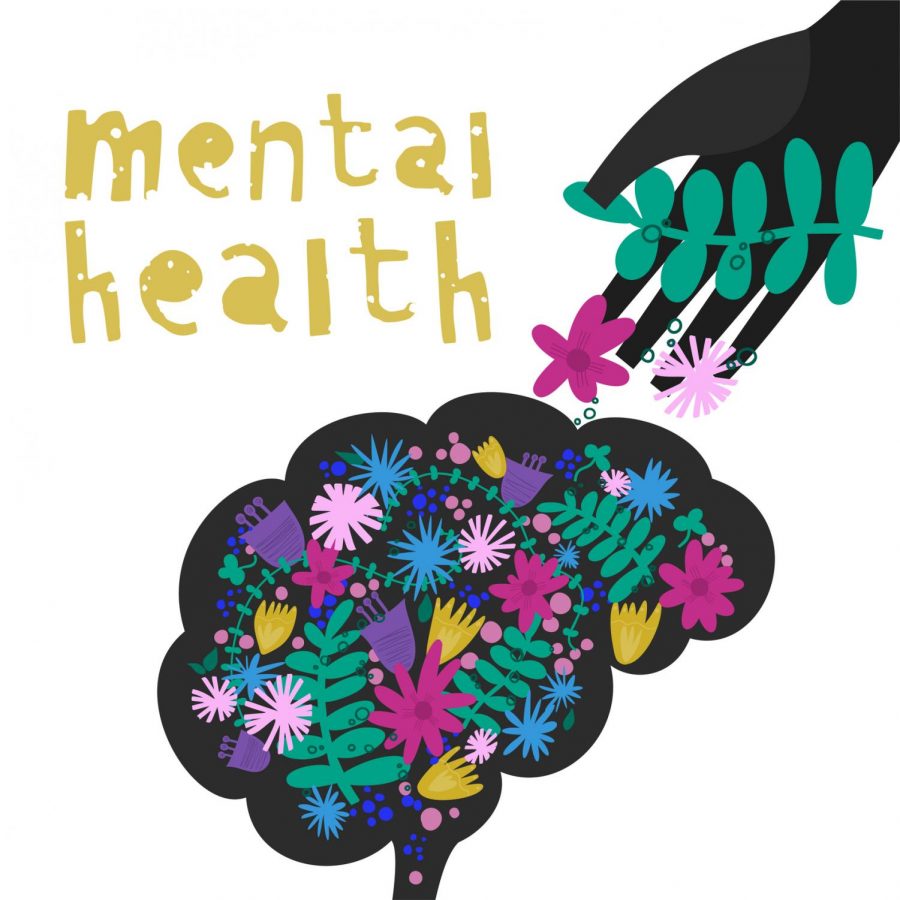Mental Health Matters
Did you know that one in five Americans suffer from a form of mental illness, and only 44% of adults with mental illness receive treatment? Mental health can affect every aspect of our daily lives, not only impacting our ability to socialize, but also our ability to learn, to do everyday tasks, and to ultimately live.
August 24, 2021
While there has been an increase in mental health awareness over the last couple of years, mental health issues have especially risen due to our current global situation. According to the CS Mott Children’s Hospital of Michigan, since the start of the pandemic, one in three girls and one in five boys have seen signs of worsening anxiety. Another study from the University of Minnesota stated that there has been a 333% increase in claims for self harm for people aged 13 to 18, as well as a 83.9% increase in generalized depression from March 2019 to March 2020.
Ms. Moe Keller, director of advocacy for Mental Health Colorado, reported about the issues primarily facing young Coloradans.
“Mental Health Colorado and Mental Health America both have screening surveys. Both of us have seen the same thing, there has been a huge spike in anxiety, stress, and depression. Young people between the ages of 11 and 18 are particularly being hurt pretty hard.”
 These facts clearly show the elevated levels of mental health issues especially involving the young population, issues that if not treated, could lead to lifelong consequences.
These facts clearly show the elevated levels of mental health issues especially involving the young population, issues that if not treated, could lead to lifelong consequences.
Mr. GMC, a Holy Family High School counselor, elaborated on the many stressors that could’ve arisen from the past couple of months.
“The pandemic has been challenging for all of us. In high school, where there are already so many variables, the pandemic adds further stress on students. ”
Many of the stresses for Holy Family students came from places outside of school. This included financial burdens, the inability to afford childcare, and death of a loved one who passed away from COVID or another sickness.
“I think the pandemic only exaggerated teens’ mental health issues and for others that had never experienced mental health issues before, the pandemic may have contributed to them experiencing mental health issues for the first time,” Counselor Mrs. Doroff remarked.
“We were lucky to be able to be in person last year as a high school. Still, the experience was not “normal” as many things were taken away; clubs, no retreats, not being able to attend sporting events, no Homecoming dance, etc.”
Mr. Hahn, also an HF counselor, answered stating: “I think the pandemic has had an impact on everyone’s mental health. At some point, we all have feelings of anxiety, tension, nervousness, worry, or stress. The good news is that there are things we can do in our lives that can help decrease our level of anxiety/worry/stress families.”
Coping mechanisms are used by many individuals to reduce that stress and turmoil present in day to day interactions. However, it is important to distinguish between unhealthy and healthy coping mechanisms, ones which can positively or negatively influence the individual’s mind and spirit. Two types of healthy coping mechanisms involve emotion focused and problem focused strategies. Each of the school counselors described coping techniques that may be beneficial for you to try.

Mr. Hahn and Mrs. Doroff both recommend relaxation exercises, such as deep breathing, visualization, yoga, positive thinking, and meditation to help achieve a positive mindset. They also encourage healthy living, stating: “Getting enough sleep, eating right, and exercising can go a long way in helping how we feel mentally.”
Mr. GMC suggests a worried student to talk to an adult, counselor, or trusted friend. He also suggests a gratitude journal, which allows individuals to “take time daily to reflect on the good things and blessings in their life.”
Perhaps one of the most valuable and accessible resources for Holy Family students is the counseling center. The counseling department also offers a variety of resources to help students struggling with mental health problems, such as check in surveys, decompressing with your counselor, referrals to outside resources, and helping you develop coping strategies help ease anxieties or stresses.
If you are currently struggling with mental health, please get help and reach out to a trusted adult, counselor, or friend. Know that your mental health matters. Your life matters.
National Suicide Prevention Lifeline: 1-800-273-8255 (24/7)
General Crisis Text Line: Text SUPPORT to 741-741
National Alliance on Mental Illness: 1-800-950-6264
Colorado Crisis Services: 1-844-493-8255, Text “TALK” to 38255

